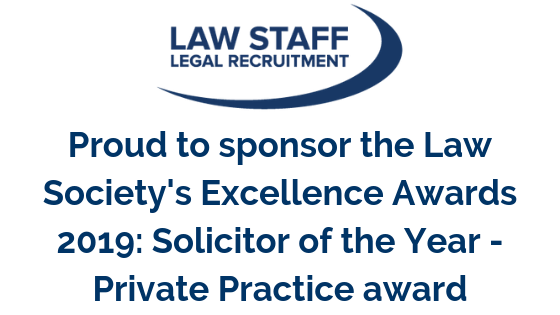Introducing the Solicitor of the Year – Private Practice Shortlist: Q&A with Yair Cohen, Partner at Cohen Davis
Q: What do you enjoy most about working in internet and social media law?
A: I enjoy the most making a significant difference to people’s lives, dealing with problems they are experiencing which they cannot resolve on their own. Because our work is so specialist and unique, we are able to provide solutions which are otherwise unavailable to clients. When we are challenged by a particular case where a resolution is evasive, we need to try new methods and strategies – this is a very exciting aspect of my job. Due to the new nature of all legal work concerning internet matters, we are creating legal precedents, new ways of achieving successful outcomes and putting new creative routes to enable the court to achieve the right outcome, which is compatible with the Internet era; not many lawyers get the opportunity to create these firsts.

Q:What is your background prior to founding Cohen Davis?
A: During my time as a law student, I studied computing and coding to help finance my legal studies. This was at a time before internet studies were popular, but as this area soon became crucial to new developments in law, my understanding of internet coding became indispensable. I realised that this combination of law and technology provides a unique offering and it was at this point that I knew there was a niche to create and develop. We are the first UK law firm to specialise only in internet matters.
Q:What would be your advice to a prospective lawyer looking to specialise in internet and social media law?
A: Start by understanding the background and history of the internet and its recent developments, rather than just the law. It is essential to possess a solid understanding of the technology and its architecture before undertaking a specialism in internet law. If you solely go by the existing law regarding internet matters, a legal successful outcome for the client could be counter productive.
A win from a legal point of view could rapidly turn into a reputational disaster. Ultimately, social media and its extensive reach is more powerful than ever, some say, even more powerful even than the law of the land; viewpoints expressed on this platform can cause damage to a case which may have been successful for the client in court, but the case becomes vulnerable online as the firm involved has not pre-empted public opinion. Your advice to the client must go far beyond legal statutes and involve how to manage the aftermath of a case’s verdict and how public perception is likely to unfold. Social media and online opinion will affect the strategy that you advise your client to implement. As a lawyer, you must try to foresee these consequences based on your experience and use PR strategies to mitigate reputational risk.
Q:What are the biggest challenges facing lawyers dealing with internet matters today?
A: The lawyer has to be very much aware of reputation in a modern environment where opinion expressed online can gain traction and power without necessarily being backed by proven facts. Overall, the lawyer and the client both need to be prepared for their reputation to be commented upon depending on the controversies a case might raise. The websites involved might be unidentifiable, difficult to trace and located anywhere in the world, but their reach could be significant on a particular topic of public concern. Managing this risk and ensuring the case is successfully received for the client both in and out of court is a challenge we face today.
A second challenge concerns the high number of people who are absolutely deserving to receive our advice but who are unable to afford it. We need to balance the maintenance of a profitable law firm with work processing complex cases on a pro bono or non-profit basis. As a firm, we have founded a charitable fund which has enabled us to take on deserving clients who would otherwise be unable to afford legal services. All cases are ultimately profitable as we have created legal precedents through this initiative and made a positive difference to people in often vulnerable situations.
Q:What is the most rewarding work you have undertaken in your career?
A: The most rewarding piece of work I have done is the case which I find the most memorable. I was contacted by an individual who was in such a distressed state, they were considering ending their life. Their situation stemmed from a period of homelessness during which they were approached by a filmmaker and convinced into going to a location to engage in a pornographic video. After this time, they deeply regretted this filming incident and tried to ask the producer not to publish the video, but this request was unsuccessful and it went live online, accessed throughout the world. From that day onward, life became so traumatic with the shame and worry of their family finding out impacting on their thoughts, that depression set in and they considered suicide as a real option. After we took on the case and carried out extensive investigatory work, managing to trace the producers, achieving removal of all content published online, securing damages and acquiring copyright so no content could be reproduced, we won the case for our client helping them to bring closure to this past trauma.

